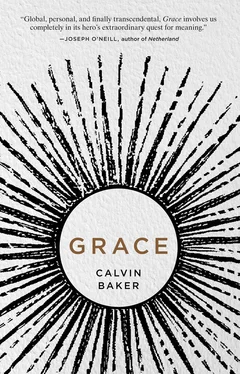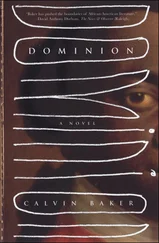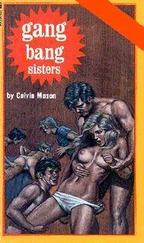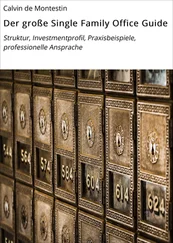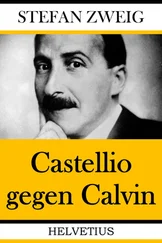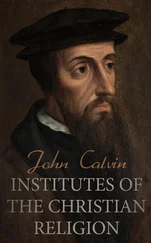“All good is built upon wickedness. From the broken world we forge a whole one.” From the fertilizer of death sprang the new crop of purity.
To his army of orphans he gave the steel of arms to defend the new world, promising none should ever lord over them again. He was their Lord, permanent as the sun.
Five years more they raged through the jungle under his command. The more they succeeded, the greater the resistance from the outside became, until he needed stronger guns to defend against stronger enemies. These he acquired from what he could pay in gold from the mines, and all were eager to deal with him.
“Colonel,” asked one of his lieutenants, who would become the head of the first breakaway faction, “does this mean we have come to accept the tenets of capitalism? Is it not an unnatural way to be?”
“War costs. We are only trading rocks from the ground that have no meaning to us, for guns that do. This one thing to Caesar, until he too can be cleansed. As for the capitalists, they are only babes, suckling in their nannies’ arms, who would not survive a season here in the mountains.”
“Are we in that case with the Communists?” A new recruit asked, bewildered.
“We are free, and beyond isms . To show how free I will baptize the souls of a thousand slavers, and we will have a feast to celebrate their ascension.”
He could afford his magnanimity. By then he commanded a world larger than Charlemagne’s Reich, and there was not an army on the continent the equal of his. He was thirty-seven then, the age we will all be in heaven, and he was at the height of his power.
When he died in that jungle his commanders found his plague-stricken body, and eulogized him, realizing how little they had known him. They did not even know what name to write on his grave. Some argued for Achilles Asha, others for Job, and another faction argued that though he had changed his name and changed it again, these were merely the fictions he had lived by in the world, and he also possessed a secret name. This died with him. And in death, as in life, he was powerless to change it. His true name.
While he lived the army went undefeated, but two generations after independence, what remained of the three armies that succeeded him was a single regiment, scattered piecemeal through the jungle, oblivious to borders, but reunited on the mountain where Achilles had made his first miraculous stand, and where they would make their last if need be — supported by a single mine, of copper not gold, and whence they would set forth again to claim and purify the earth.
They were virgins, and so long as they knew not the sins of the flesh God would be on their side, and their struggle was permanent as the blood red sun.
These were our captors.
“How do you live with yourselves?” Effie asked, as we neared their mountain in the late afternoon light. “Why do you hate so much?”
Their officer looked out over the receding jungle with the disquieting calm and self-command of those inured to death. “I do not have to answer this insolence, sister. But I will share with you a secret. Death is natural. Yours, mine, everyone’s. I do not hate you, or anyone, even those I kill. All must die. Perhaps our enemies hate us, but to our view, the missionaries and colonizers — who came and stole the land from the old generation and then stole a new generation from the land — acted according to nothing but the perfection of their own purpose. To the extent they succeeded at that we salute them. They were excellent slavers, and excellent missionaries, doing whatever they thought was required of them to further their own way of life. We intend the same, according to a new purpose, to unwind history by our own thread. It is not personal. In another context I would be the implement of your desire — you would order me as you willed, Lord I Peter, stop blaspheming and fetch me a Tusker — so it is a question of subject and object. Who and Whom. ”
The truck bounded over the broken road as our guards fixed their ears on their leader and their hardened stares on us. We continued up the mountainside, powerless, toward their camp.
“Why are you with the missionaries, eh?” their leader asked, picking me out from the others.
“I am not with them,” I said calmly. He was nothing more than another sociopath, and I did not want to give him anything to seize on. “I am only with her.”
“She is a nun,” he laughed, looking at Sylvie with his red-rimmed eyes. He had spotted the bracelet on her wrist, which he now took in his battered hands, as a look of abject terror inched across her face.
“Why is she wearing the rosary?”
“It is from me,” I said.
“A present must be of gold,” he laughed. “It is a rosary.” His voice contained a preternatural calmness. He was in his element, and it was nothing for him to kill. He only needed a reason, and he would take a life as simply as blowing out a match. Or no reason at all.
“It is just a bracelet.” I feigned indifference, which I had for myself, but not for her.
“You are not a Christ bride, sister?” he asked.
“No. She is mine.”
“You are a race-mixer, my brother,” he grinned a demented grimace.
I did not want to give him fodder for his lunacy and stared straight ahead.
“The chief spoke to you. Answer him,” one of his minions threatened.
“What you call race is a lie,” I said.
“Ah. You are a white man.”
“I am black as you.”
“You are impure.”
“Purity is a worse lie.”
I did not want to debate the eighteenth century, and especially not with an armed madman. To my relief, though, he let go of her wrist for the moment, but as he turned away his eye caught mine in a different way. I saw him registering something as a flickering passed behind his thoughts. He saw me then, and that I was not afraid of him. I knew we were marked. He had released her wrist and the bracelet, though, for the time being, as we continued up the mountain, ascending to their base.
We were at the base of the mountain inside the damp clouds. Above us the lights from their camp were visible as a diffuse glow, refracted by the water vapor. The buzz of activity reached our ears from the camp, filling us with alternating currents of fear of the strange voices and fear of an unknown fate, as they forced us from the truck and started marching us upslope.
Sylvie was shaking as we climbed down from the truck, and I offered my hand to steady her in the condensed stillness, where all was quiet except the spray of pebbles from our boots as we ascended a narrow trail through the cloud forest.
When we had climbed more than an hour the path began thinning out even further, forcing us to scramble in single file up the steepest part of the slope, searching in the thickening darkness for handholds to help pull ourselves up when the ground fell away uncertainly.
We were slowed to a near halt, as the boots of the person in front cleated the dust down onto whoever was next, so that the line was stretched out forty feet against the face of the mountain. Two of the guards stood up ahead. To intimidate us, two were on either side of the group hectoring to speed us up, and another in the rear. Sylvie and I were near the last in line and the darkness was almost palpable by then, as we shivered from sweat and exertion.
The guards were growing agitated, visibly eager to get to the light and warmth of their camp, which could be seen clearly now, casting its steady glow out into the ravines opening below us.
“Whatever happens keep your head,” I said, as we neared the two soldiers at the midpoint of the slope.
“Quiet,” their shouts rained down on us from above. “No talking.” They climbed like rams, and our slow-going was keeping them in the cold, away from their cooking fires, which we had started to smell. When we looked up we saw the front of our line had started to disappear into the mouth of the cave, and I grasped Sylvie’s wrist to hold her there.
Читать дальше
